When the American Principles Project was founded in 2009, our nation was entering a period of transition. Barack Obama had just been sworn into office as the 44th President of the United States. The conservative movement was still recovering from a series of difficult election defeats, with the Tea Party uprising still about a year away. The political Right was in need of fresh ideas.
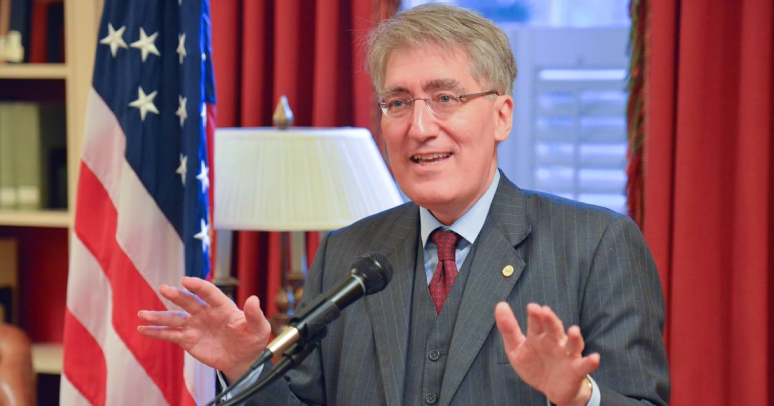
APP founder and Princeton University Professor Robert P. George speaks at an event in Washington
It was at this time that noted conservative intellectual Prof. Robert George and veteran political strategist Frank Cannon joined together to establish APP. Its mission was to bring back into the spotlight issues critical to human dignity that had long been undervalued and ignored by both political parties: issues such as developing an economic plan focused on empowering working Americans, reforming our education system to better preserve the innocence of our children, and advancing the debate surrounding immigration policy.
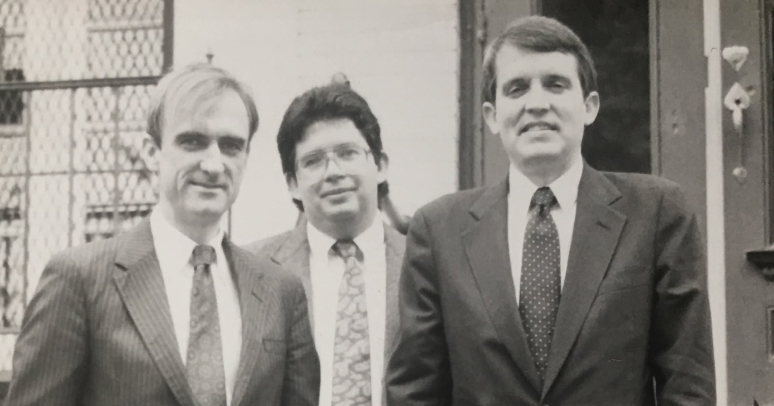
APP’s president Frank Cannon (center) with Jeff Bell (right) and John D. Mueller
The goal across each area would be to connect the best academic thinking on each topic with a sound political strategy geared toward changing policy. However, although APP itself may have been a new arrival to the political scene, the ideas behind it had been developing for some time.
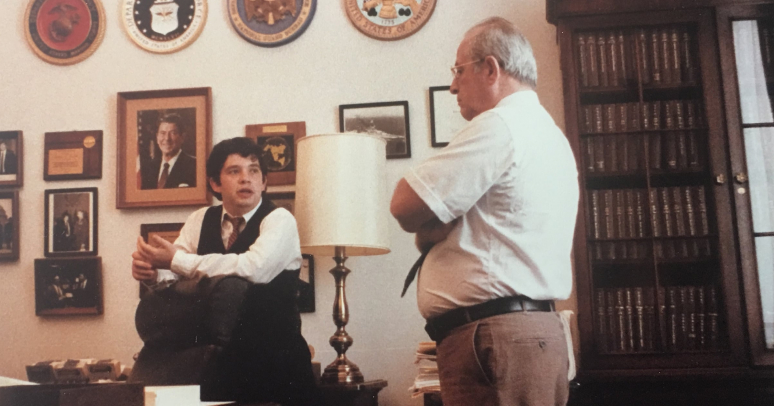
APP’s president Frank Cannon, then Chief of Staff for Rep. Duncan Hunter, meets with a conservative leader
Cannon, as well as APP’s Policy Director Jeff Bell, drew on their considerable campaign and political consulting experience as they developed the new organization’s strategy. Bell, who worked as an aide for President Nixon and then as a key campaign official during Ronald Reagan’s table-setting 1976 presidential run, and Cannon, who worked on campaigns for Reagan, Jack Kemp, and John McCain, were both interested in the question of how best to build a bridge from academic argument to policy.
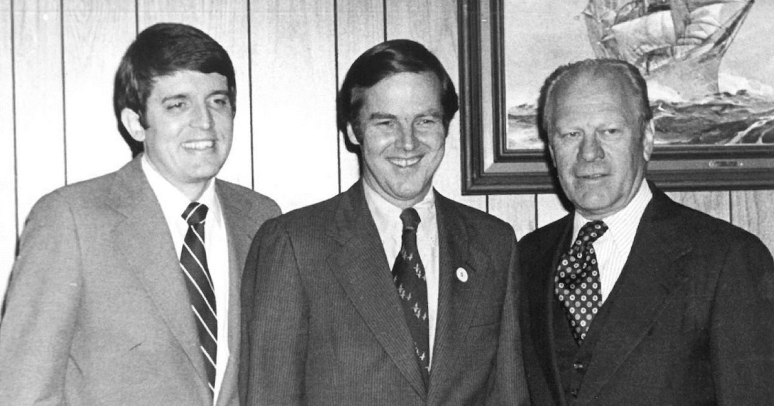
Jeff Bell (left) with Thomas Kean and President Gerald Ford
They were also concerned with the modern conservative movement’s lack of intellectual coherence, a problem which often led both to legislative and electoral failures. Joining forces with Prof. George and APP Board Chairman Sean Fieler, they sought to solve this problem by grounding a reorganized conservatism on the principle of human dignity.
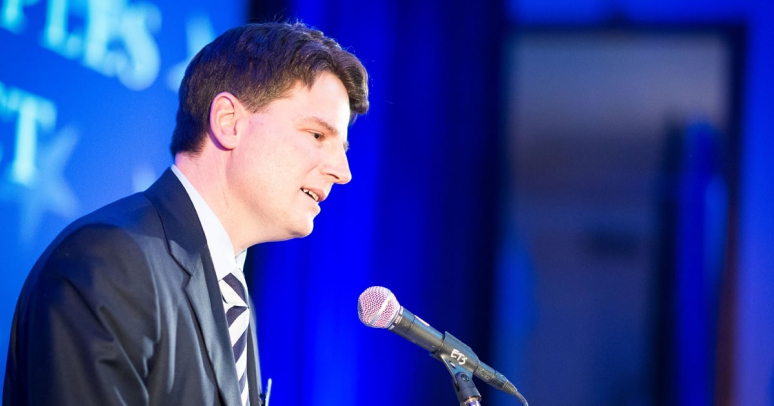
APP chairman Sean Fieler speaks at APP Foundation’s Red, White and Blue Gala
Using this as its starting point, APP launched itself into the rough-and-tumble political arena. Despite its small size and budget, the organization was able to have an immediate and outsized impact on the policy debate, especially in regards to presidential politics. In 2011, APP was the main sponsor of the Palmetto Freedom Forum, a Republican presidential primary debate televised nationally by CNN, helping put its ideas front and center during that year’s election. APP also broke new ground in the debate thanks to its insistence that it would choose the panelists (Sen. Jim DeMint, Rep. Steve King, and Prof. George), not the media, an effort spearheaded by APP program director Emmett McGroarty. Four years later, during the 2016 primary, APP was again able to influence the election through scorecards on a number of issues and via a pledge signed by the vast majority of Republican candidates (including Donald Trump) to sign the First Amendment Defense Act into law.
APP has also found success on individual issues, none more so than the Common Core education standards. Led by McGroarty, APP became one of the first major groups to oppose the Common Core, developing strong intellectual arguments against the standards and organizing the burgeoning grassroots opposition movement in the states. APP helped lead the charge in Indiana, the first of a number of states to legislatively repeal Common Core, and injected the issue into the 2016 GOP primary, where Trump used it as a key message of his winning campaign. This effort also led to a wider project which exposed how progressives have turned our nation’s constitutional structure upside down — putting the federal government in charge of state policy and reshaping the will of the citizen.
Following the 2016 election, APP turned its focus toward defending the most important institution upholding human dignity in society: the family. After having battled in the public policy arena for almost a decade, APP’s leaders realized that a major obstacle holding back the pro-family movement was a lack of political engagement. While other conservative causes (for example, the pro-life and pro-Second Amendment movements) have achieved significant policy successes thanks to their robust involvement in electoral politics, no pro-family groups were dedicated to building such an operation. This is the gap that APP now seeks to fill — engaging directly in campaigns and elections to prove that pro-family issues are winning issues and to hold candidates accountable for their words and actions on these issues.
Since its founding in 2009, APP has achieved much and has plans to accomplish much more. Our story has just begun — and we hope you can join us for the next chapter.